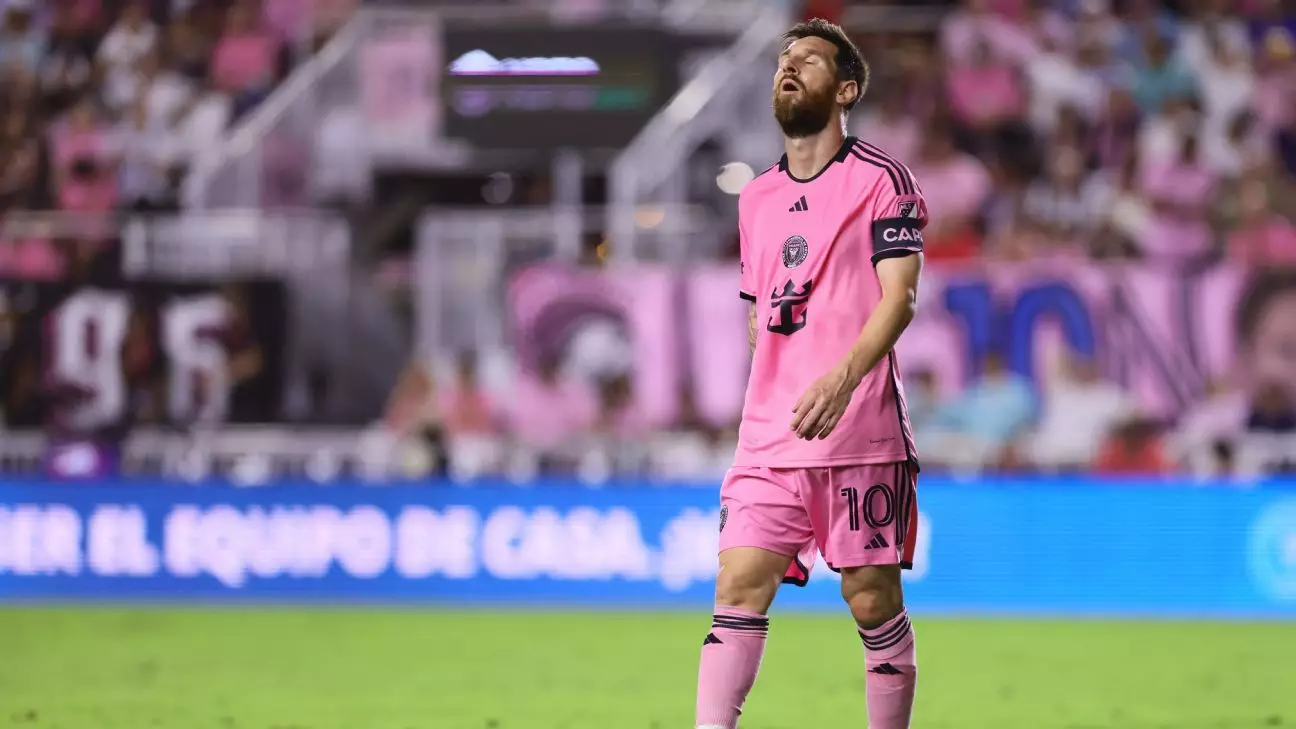Despite starting the season with high hopes, Inter Miami fans experienced a stark turn of events as the 2024 MLS season concluded with their heartbreaking first-round exit from the playoffs against Atlanta United. With more than 20,000 fans left in stunned silence at Chase Stadium, the disappointment encapsulated a season marked by unfulfilled expectations. The team’s failure to perform, despite a roster filled with elite talent, didn’t just happen overnight—it was a culmination of factors that put Inter Miami under immense pressure from the very beginning.
Even before the season kicked off, the warning signs were evident. The preseason, which saw the team undertake a grueling travel schedule covering over 28,000 miles across three continents, raised questions about the players’ physical preparedness. Messi himself remarked on the strenuous nature of the preseason, acknowledging that while the exposure was beneficial, it wasn’t conducive to building the necessary fitness ahead of a competitive season. The ramifications of this chaotic buildup were immediate and severe.
Injuries plagued the squad almost from the outset. Key players like Facundo Farías fell victim to serious injuries, with his ACL tear sidelining him for the entire season before it even began. By the end of March, Inter Miami found itself with an unusually long injury list, leading the league with seven players unavailable. As the season progressed, muscular exhaustion compounded the problem, and the staff was forced to manage player loads, particularly with stars like Messi.
With injuries mounting, head coach Gerardo Martino faced a daunting challenge: to craft a competitive squad from a revolving door of players. While Messi, Luis Suárez, and other veteran stars could mask some issues, they couldn’t hide the growing instability within the squad. The lack of depth became evident in crucial matches where bench players who were inadequately prepared found themselves thrust into pivotal roles. Such a scenario is fine in theory, but in practice, it often led to mismatched formations and uncoordinated play.
The team relied heavily on its marquee players, creating an unsustainable dependency on Messi and Suárez’s contributions. Miami’s attacking brilliance would often overshadow glaring defensive vulnerabilities, reflected in their stats. They finished the season conceding a staggering 49 goals, with only six clean sheets in 34 matches. This imbalance highlighted vulnerabilities that became glaringly apparent in playoff matchups where high stakes demanded a fully synchronized team performance.
Despite possessing evident talent, Miami ultimately fell short against Atlanta United in a tight playoff series. The loss forced tactical considerations that further exposed the team’s weaknesses. Martino’s decision-making was put under scrutiny when forced to replace injured midfielders; the resulting plan required players to take on unfamiliar roles, creating disarray on the pitch. When substitutes were needed, the squad crumbled, ultimately leading to a haphazard, ineffective structure that was a far cry from the cohesive team they claimed to be.
The collapse in the decisive Game 3 was emblematic of their wider struggles throughout the season. The combination of poor roster construction, reliance on aging stars, and an inability to adjust to the physical demands of a busy schedule led to a scenario wherein mistakes were amplified in critical moments. As Messi poignantly noted post-match, “Silly mistakes can end your championship hopes,” a haunting reflection underscored by the reality of their elimination.
The fallout from the 2024 season should serve as a wake-up call for Inter Miami as they prepare for an even busier 2025 campaign, which includes multiple tournaments like the MLS, Concacaf Champions Cup, Leagues Cup, and the Club World Cup. This isn’t just about changing a few players or tactics; it requires a paradigm shift in their approach to roster construction and preseason preparation.
Going forward, it will be crucial for the organization to establish depth, particularly in the backline where they suffered significant upheaval. Recruiting reliable bench players is essential to ensure that injuries do not unravel the team’s competitive hopes. With key contracts up for renewal, decision-makers will need to act promptly but judiciously to create a more balanced roster capable of sustaining challenges across multiple tournaments.
Inter Miami undoubtedly remains a club with potential and resources to build a formidable squad. However, avoiding the pitfalls of previous seasons demands comprehension of the lessons learned in 2024: prioritizing player health, establishing tactical consistency, and developing a well-rounded roster capable of navigating the rigors of professional soccer. If they can achieve these goals, they may indeed find themselves lifting trophies in seasons to come, restoring the glory that their fan base so fervently desires.

